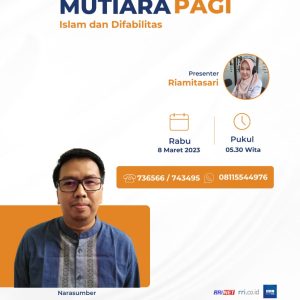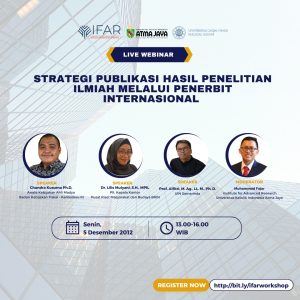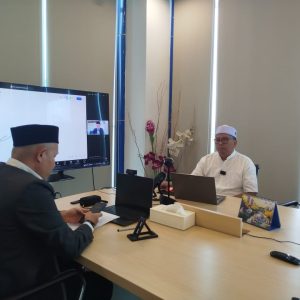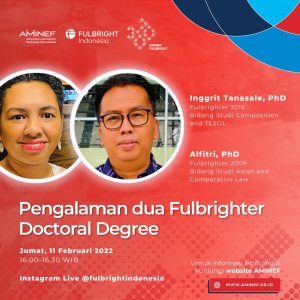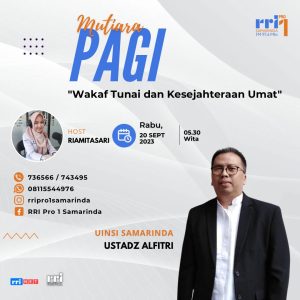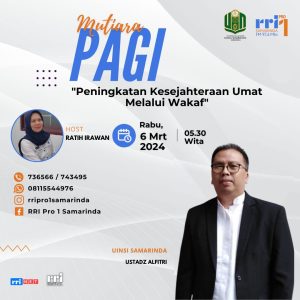Universitas Islam Negeri Sultan Aji Muhammad Idris Samarinda
Prof. Alfitri, S.Ag., LL.M., Ph.D.

197607092001121004
2009077603
Pembina Tk. I/IVb
Guru Besar
- Ph.D. (Law/Law, Societies & Justice) – University of Washington (2015)
- LL.M. (by coursework). – The University of Melbourne (2006)
- MA. (Islamic Law) – UIN Sunan Kalijaga Yogyakarta (2004)
- LL.B. (Sharia) (cum laude) – UIN Sunan Kalijaga Yogyakarta (1999)
- Fiqh Zakat, Metode Penelitian Hukum (S1-S2)
- Hukum Islam dan HAM, Gender dan HAM (S2)
- Manajemen Wakaf, Seminar Internasional (S3)
Biografi singkat
Prof. Alfitri adalah Guru Besar dalam bidang Ilmu Hukum Islam dan menjadi yang pertama meraih gelar Profesor di UIN Sultan Aji Muhammad Idris (UINSI) Samarinda. Pengangkatan beliau sebagai Guru Besar ditetapkan melalui SK Menteri Pendidikan, Kebudayaan, Riset, dan Teknologi Republik Indonesia pada tanggal 6 April 2022. Saat ini, beliau aktif sebagai dosen tetap di Fakultas Syariah dan juga dipercaya sebagai Dekan Fakultas Syariah UINSI Samarinda.
Lahir dan besar di Padang, Sumatera Barat, Prof. Alfitri menempuh pendidikan S1 di Fakultas Syariah UIN Sunan Kalijaga Yogyakarta, kemudian melanjutkan jenjang S2 Magister Agama di bidang Hukum Islam di kampus yang sama. Beliau memperluas wawasan keilmuan di tingkat internasional dengan meraih gelar Master of Laws (LL.M.) dari University of Melbourne, Australia. Gelar doktoral (Ph.D.) berhasil beliau raih di University of Washington, Seattle, Amerika Serikat, dalam bidang Law, Societies & Justice. Latar belakang pendidikan ini memperkaya perspektif beliau dalam mengintegrasikan hukum Islam dengan konteks hukum modern dan sistem perundang-undangan nasional.
Sebagai akademisi dan peneliti, Prof. Alfitri memiliki perhatian besar pada isu-isu keadilan sosial, hukum Islam kontemporer, dan hubungan antara agama dan negara. Salah satu karya monumental beliau adalah buku Islamic Law and Society in Indonesia: Corporate Zakat Norms and Practices in Islamic Banks, yang diterbitkan oleh Routledge pada tahun 2022. Buku ini merupakan hasil riset mendalam selama lebih dari 10 tahun dan mengkaji praktik zakat perusahaan di sektor perbankan syariah di Indonesia. Melalui pendekatan empiris dan analisis hukum, karya ini memberikan kontribusi penting bagi pengembangan fikih sosial serta penguatan tata kelola zakat nasional.
Di tingkat internasional, Prof. Alfitri aktif dalam berbagai forum akademik, termasuk terpilih sebagai salah satu peserta Young Scholars Fellowship on Religion and the Rule of Law yang diselenggarakan oleh International Center for Law and Religion Studies (ICLRS) bekerja sama dengan Christ Church, University of Oxford. Selain itu, beliau juga kerap diundang sebagai dosen tamu di berbagai perguruan tinggi terkemuka di Indonesia dan menjadi narasumber dalam berbagai diskusi kebijakan publik, termasuk debat calon kepala daerah.
Dalam pidato pengukuhannya sebagai Guru Besar, Prof. Alfitri mengangkat tema “Konstitusionalisasi Hukum Islam di Indonesia melalui Mekanisme Pengujian Undang-undang: Misi (Bukan) Mustahil?”, yang menyoroti tantangan dan peluang dalam integrasi hukum Islam ke dalam sistem hukum nasional melalui peran Mahkamah Konstitusi. Gagasan tersebut mencerminkan komitmen beliau untuk menjadikan hukum Islam sebagai elemen strategis dalam pembangunan hukum nasional yang berkeadilan dan inklusif.
Sebagai pendidik, peneliti, dan pemimpin akademik, Prof. Alfitri terus menginspirasi sivitas akademika melalui dedikasi dan integritasnya. Beliau menjadi representasi nyata akademisi Indonesia yang mampu menjembatani tradisi keilmuan Islam dengan dinamika hukum global kontemporer.
Riwayat Pelatihan
- Brigham Young University (BYU) Law – International Center for Law and Religion Studies and Christ Church, Oxford, Young Scholars Fellowship on Religion and the Rule of Law, Oxford, UK 2023.
- Harvard Law School – Institute for Global Law & Policy (IGLP) and the Graduate Institute of Geneva, Global Scholars Academy (Online), 2021.
- Walisongo Mediation Center (WMC) State Islamic University (UIN) Walisongo, Mediator Professional Education, Batch 25th, Semarang 2019.
- Harvard Law School – Institute for Global Law & Policy (IGLP) and Thailand Institute of Justice (TIJ), The IGLP Asian Regional Workshop, Bangkok 2017.
- University of Washington – Asian Law Center, Summer Legal Institute, Seattle 2009.
- Ministry of Religious Affairs – Research and Development, Participatory Action Research Workshop, Makassar 2007.
- Melbourne Law School, Australian Legal Process and Legal Institutions, Melbourne 2005.
- Australian Development Scholarship – Indonesia Australia Language Foundation (IALF), English for Academic Purposes, Jakarta 2004.
- International Institute of Islamic Thoughts (IIIT) and Faculty of Economics and Business, Gadjah Mada University, Short Courses on Islamic Economics, Yogyakarta 2000.
Riwayat JABATAN
- Dosen Fakultas Syariah UINSI Samarinda
- Dosen Program Studi Hukum Keluarga Pascasarjana UINSI Samarinda
- Ketua Lembaga Penelitian dan Pengabdian kepada Masyarakat (LP2M) UINSI Samarinda
- Editor-in-Chief Jurnal Mazahib, yang berhasil terindeks Scopus pada tahun 2022
- Dekan Fakultas Syariah UINSI Samarinda (2023 – sekarang)
Daftar Publikasi IlmiaH
Islamic Law and Society in Indonesia: Corporate Zakat Norms and Practices in Islamic Banks (Abingdon, Oxon: Routledge, 2022). ISBN 9781032019796
- “Private Islamic Universities in Indonesia: Keeping Piety Relevant to Modern Education,” in Islam, Education and Radicalism in Indonesia: Instructing Piety, edited by Tim Lindsey (London: Routledge, 2023) ISBN 9781032216126. [co-authored w/ Muzayyin Ahyar]
- “Expanding a Formal Role for Islamic Law in the Indonesian Legal System: The Case of Muamalat,” in Islamic Law in Practice (pp. 249-70), edited by Mashood A. Baderin (London: Routledge, 2014). ISBN: 9780754628774.
- “The Organization of Islamic Conference (OIC) and Its Significance for War against Terrorism” in International Law in a Globalized World: Voices from Asian (pp. 256-96), edited by Abdul Ghafur Hamid @ KhinMaung Sein (New Delhi: Serials Pub., 2008). ISBN: 8183871240, 9788183871242
- “Unregistered Polygamy Validation: Isbat Nikah, Polygamy Permit, and Due Process of Law in Indonesian Religious Courts” 28(1) Ulumuna Journal of Islamic Studies (2024): 313-344. [co-authored w/ Rijal Imanullah and Aulia Rachman]
- “Hearsay Evidence Admissibility: Due Process and Evidentiary Rules in Muslim Marriage Legalization (Isbat Nikah),” 16(3) Fiat Justisia Jurnal Ilmu Hukum (2022): 269-296. [co-authored w/ Latifatul Fajliyah]
- “Safeguarding Women’s Constitutional Rights in the Judicial Reviews of Marriage Law on the Minimum Married Age Limit,” 20(1) Mazahib Jurnal Pemikiran Hukum Islam (2021): 103-142. [co-authored w/ Hamidin]
- “Bureaucratizing Fatwa in Indonesia: The Council of Indonesian Ulama and Its Quasi-Legislative Power,” 24(2) Ulumuna Journal of Islamic Studies (2020): 367-397.
- “Protecting Women from Domestic Violence: Islam, Family Law, and the State in Indonesia,” 27(2) Studia Islamika (2020): 273-307.
- “Aksi Bela Islam: Islamic Clicktivism and the New Authority of Religious Propaganda in the Millennial Age in Indonesia,” 9(1) Indonesian Journal of Islam and Muslim Societies (2019): 1-29. [co-authored w/ Muzayyin Ahyar]
- “The Difference of a Child (Walad) Concept in Islamic Inheritance Law and its Implications on the Decisions of the Religious Courts in Indonesia,” 17(2) Mazahib Jurnal Pemikiran Hukum Islam (2018): 119-145. [co-authored w/ Ana Amalia Furqan & Akhmad Haries]
- “Religion and Constitutional Practices in Indonesia: How Far Should the State Intervene in the Administration of Islam in Indonesia?” 13(2) Asian Journal of Comparative Law (2018): 389-413.
- “The Role of Sharia Judges in Indonesia: between the Common Law and Civil Law Systems,” 16(2) Mazahib Jurnal Pemikiran Hukum Islam (2017): 110-124.
- “Whose Authority? Contesting and Negotiating the Idea of a Legitimate Interpretation of Islamic Law in Indonesia,” 10(2) Asian Journal of Comparative Law (2015): 191-212.
- “Putusan Mahkamah Konstitusi sebagai Tafsiran Resmi Hukum Islam di Indonesia,” [The Constitutional Court Decisions and the Interpretations of Islamic Law in Indonesia] 11(2) Jurnal Konstitusi (2014): 296-314.
- “Women’s Rights and Gender Equality Issues in Islamic Law in Indonesia: The Need to Re-Read Women’s Status in the Islamic Religious Texts,” 13(1) Mazahib Jurnal Pemikiran Hukum Islam (2014): 23-38.
- “Ideologi Welfare State dalam Dasar Negara Indonesia: Analisis Putusan Mahkamah Konstitusi Terkait Sistem Jaminan Sosial Nasional,” [Welfare State Ideology in the Indonesian Constitution: Analysis of Constitutional Court Decisions Regarding the National Social Security System 9(3) Jurnal Konstitusi (2012): 449-72.
- “Legal Reform Project, Access to Justice, and Gender Equity in Indonesia,” 9(2) Indonesian Journal of International Law (2012): 292-308.
- “Konflik Hukum antara Ketentuan Hukum Pidana Islam dan Hak-Hak Sipil? Telaah Konsep HAM dan Implementasi Ratifikasi ICCPR dan CAT di Indonesia,” [Conflict of Law between the Requirements of Islamic Criminal Law and Civil Rights (ICCPR and CAT)] 7(2) Jurnal Konstitusi (2010): 99-138.
- “Philanthropy and the Indonesian Community in Seattle: The Cerdas Foundation Experience,” 5(1) Kultur: The Indonesian Journal for Muslim Cultures (2010): 105-119.
- “Can the Requirements of Sharia Law Regarding Criminal Punishments be interpreted in a way that is Compatible with the ICCPR and CAT?” 7(1) Indonesian Journal of International Law (2009): 100-136.
- “Religious Liberty in Indonesia and the Rights of ‘Deviant’ Sects,” 3(1) Asian Journal of Comparative Law (2008): 1-27.
- “Expanding a Formal Role for Islamic Law in the Indonesian Legal System: The Case of Muamalat,” 23(1) Journal of Law and Religion (2007): 249-270.
- “The Organization of Islamic Conference (OIC) and Its Significance for War against Terrorism,” 1(2) Asian Journal of International Law (2006), 307-347.
- “The Law of Zakat Management and Non-Governmental Zakat Collectors in Indonesia,” 8(2) The International Journal of Not-For-Profit Law (2006), 55-64.
- “Pemahaman Konsep Mazhab Hukum dan Implikasinya terhadap Persoalan Tertutupnya Pintu Ijtihad,” [Understanding the Concept of Islamic School of Law and Its Implications on the Issue of the Closed Door of Ijtihad] 10(48) Mimbar Hukum (2004): 10-23.
- “Perkembangan Perbankan Syari’ah dan Signifikansi Formalisasi Hukum Ekonomi Islam (Muamalat) di Indonesia,” [The Development of Islamic Banking and the Significance of Formalization of Islamic Economic Law in Indonesia] 13(2) Jurnal Penelitian Agama (2004), 314-29.
- “Relasi antara Agama dan Negara dalam Islam: Refleksi atas Ideal Agama dan Realitas Sejarah,” [Relations between Religion and the State in Islam: Reflections on Ideal Religion and Historical Reality] 3(1) Millah Jurnal Studi Agama (2003): 142-152.
- “Evaluasi Perkembangan Perbankan Islam di Indonesia,” [Evaluation of the Development of Islamic Banking in Indonesia] 1(1) Hermeneia Jurnal Kajian Islam Interdisipliner 2002.
- Pengesahan Poligami Siri Di Indonesia: Tinjauan Hukum Dan Masyarakat? Litapdimas, 2022.
- Hukum Islam Dan Kepatuhan Konstitusi Di Indonesia: Tanggapan Addresat Hukum Terhadap Putusan Mahkamah Konstitusi Tentang Status Anak Sah. Litapdimas, 2023.
- Ceramah Hukum dan Agama di Indonesia bagi Akademisi dan Praktisi Hukum. Young Scholar Fellowship BYU-Oxford, Internasional 2023.
- Diseminasi Buku “Islamic Law And Society In Indonesia: Corporate Zakat Norms And Practices In Indonesia”. Litapdimas, 2024
- “Regulating Unregistered Marriage and Polygamy in Indonesia: A Love-Hate Relationship for the Pancasila State?” The 6th International Conference on Law and Governance in a Global Context (ICLAVE) 2024, Law School, Universitas Indonesia, Depok, 4-5 November 2023.
- “Constituting Islamic Law in Indonesia through the Constitutional Court: How Have the Sharia Courts Observed the Legitimate Child’s Clause?” Fiqh and Justice in an ‘Abnormal’ Context: Connecting Islamic Tradition to Contemporary Challenges, International Islamic University of Indonesia, Depok, 7-8 November 2023.
- “Unregistered Polygyny Legalization: Negotiating the Balance of Law and Religion in Indonesia,” The Asian Century: International Conference on Law, Business and Society, Jindal Global Law School, Sonipat, India, 21-24 January 2023.
- “Constituting Islamic Law in Indonesia through Judicial Reviews: A Mission (Not) Impossible?” the 4th Indonesian Constitutional Court International Symposium, Mahkamah Konstituti Republik Indonesia, 15-16 September 2021.
- “Legalizing Unregistered Polygyny in Indonesia: The Difference of Methods and Their Impacts,” the 2nd IANJ Conference of Socio Legal-Studies on Indonesia, Faculty of Law Universitas Indonesia, 23-24 August 2019. [co-author with Rijal Imanullah]
- “Sharia, Legal Fiction, and Popular Support: Case Studies of Compliance with Corporate Zakat Duty in Indonesian Islamic Commercial Banks,” 17th Annual International Conference on Islamic Studies (AICIS), Jakarta, 20-23 November 2017.
- “Religion and Constitutional Practices in Indonesia,” International Symposium “Religion and Constitutional Practices in Asian,” hosted by Centre for the Asian Legal Studies (CALS) – National University of Singapore and the International Centre for Ethnic Studies (ICES) Sri Lanka, Colombo, 9-10 November 2017.
- “Why Do Companies Pay Their Alms Tax (Zakat)? Case Studies of Compliance with Corporate Zakat Obligation in Islamic Commercial Banks in Indonesia,” 1st International Conference on Law and Justice, Faculty of Sharia and Law, UIN Syarif Hidayatullah, Jakarta, 7-8 November 2017.
- “The Council of Indonesian Ulama (MUI) and Its Quasi-Legislative Power: How Did MUI Acquire and Exercise it?” 2nd Studia Islamika International Conference 2007, Jakarta, 8-10 August 2017.
- “My Zakat is My Money: Islamic Commercial Banks’ Responses to State Intervention in Zakat Administration in Indonesia,” World Zakat Forum (WZF) Conference 2017, Jakarta, 14-16 March 2017.
- “Maslaha-cum-Maqasid as a Guiding Principle in the Corporate Social Responsibility (CSR) Practice within Islamic Commercial Banks in Indonesia,” the 15th Annual International Conference on Islamic Studies, Manado, North Sulawesi 3-6 September 2015.
- “Why Do Companies Pay Their Alms Tax (Zakat)? Case Studies of Compliance with Corporate Zakat Obligation in Islamic Commercial Banks in Indonesia,” the 2015 Law and Society Association Annual Conference Program, Seattle, Washington, USA, 28-3 May 2015.
- “The Constitutional Court Decision in Siyasa Shar`iyya Framework: Can These Decisions be regarded as the Interpretation of Islamic Law in Indonesia?” the 14th Annual International Conference on Islamic Studies, Balikpapan, East Kalimantan, 21-24 November 2014.
- “Authority, Continuity and Change: How have Indonesia’s Islamic Jurists Responded to Corporate Zakat?” 6th International Indonesia Forum Conference “Transformation toward the Future: Continuity versus Change in Indonesia,” Yogyakarta, 21-22 August 2013.
- “Can the Requirements of Shariah Law Regarding Criminal Punishments be interpreted in a way that is Compatible with the ICCPR and CAT?” (in Indonesian) Annual Conference on Islamic Studies 2007, Pekanbaru, Riau 21-24 November 2007.
- “Can the Requirements of Shariah Law Regarding Criminal Punishments be interpreted in a way that is Compatible with the ICCPR and CAT?” The 4th Asian Law Institute (ASLI) Annual Conference, Jakarta, 24-25 May 2007.
- “Religious Liberty in Indonesia: Guarantees from the Constitution and the Rights of ‘Deviating Sects,’” 2006 Harvard Project for Asia and International Relation (HPAIR), Singapore, 18-21 August 2006.
- “Expanding a Formal Role for Islamic Law in the Indonesian Legal System: The Case of Mu’amalat,” 2005 CSCI (Centre for the Study of Contemporary Islam) & ALC (Asia Law Centre) Islamic Studies Postgraduate Conference, Melbourne, 21 – 22 November 2005.
- “Why Do Companies Pay Their Alms Tax (Zakat)? Case Studies of Compliance with Corporate Zakat Obligation in Islamic Commercial Banks in Indonesia,” Proceeding of 1st International Conference on Law and Justice – Good Governance and Human Rights in Muslim Countries: Experiences and Challenges (ICLJ 2017), Volume 162 Advances in Social Science, Education and Humanities Research (February 2018), 23-26.
- “My Zakat is My Money: Islamic Commercial Banks’ Responses to State Intervention in Zakat Administration in Indonesia,” Proceeding of World Zakat Forum (WZF) International Conference 2017 (March 2017) 99-112; ISBN: 2579-9223.
GALERI Kegiatan PKM

